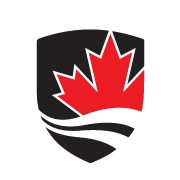This course covers neural, neuro-muscular, endocrine, cardiovascular, renal-osmoregulatory physiology and relevant anatomy.

Human and Comparative Physiology is our 3000 level mammalian physiology course with laboratory component. Labs are weekly (4 hours) and use living tissue to explore neural, cardiovascular, muscular, and regulatory fundamentals.
Rigorous lab reports significantly benefit student improvement in scientific research, writing and communication. This course covers neural, neuro-muscular, endocrine, cardiovascular, renal-osmoregulatory physiology and relevant anatomy.
This course is human focused but uses comparative approaches (e.g. understanding the anatomy of the human heart is facilitated by comparison with fish, amphibian and reptilian hearts and circulatory pathways).
This course is open to our Honours program students and students in other programs with the prerequisites (space permitting).
Situated on unceded Algonquin territory beside the historic Rideau Canal, an official UNESCO World Heritage Site, Carleton University was founded by the community in 1942 to meet the needs of veterans returning from the Second World War.
We strive for innovation in research, teaching and learning.
Our location in Ottawa, the nation’s capital, connects us to the world.
We encourage hands-on experience in the classroom.
We offer exceptional student support
They have an entrepreneurial spirit.
They are prepared for careers in our rapidly changing job market.
They are driven by a desire to change the world.
They are 125,000 strong.
What defines our people?
Carleton University is a community of talented, committed and enthusiastic faculty and staff, dedicated to excellence and to supporting the education and research that distinguishes Carleton as Canada’s Capital University. We know that it is our people that are key to Carleton’s success.
We take pride in our institution and are committed to providing the programs and services that contribute to Carleton University being an employer of choice. Join our community: Job Opportunities.
© 2025 coursetakers.com All Rights Reserved. Terms and Conditions of use | Privacy Policy